| Srl | Item |
| 1 |
ID:
118625
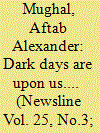

|
|
|
| 2 |
ID:
159536
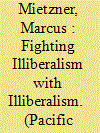

|
|
|
|
|
| Summary/Abstract |
The global rise of populist campaigns against democratic governments has revived the long-standing scholarly debate on how democracies can best defend themselves against anti-democratic challenges. While some view an aggressive militant democracy approach as the most effective option, others propose accommodation of populist actors and voters. Others again suggest a merging of the two paradigms. This article analyzes how the government of Indonesian President Jokowi has responded to the unprecedented Islamist-populist mobilization in the capital Jakarta in late 2016. Unsystematically mixing elements of all available options, Jokowi’s administration pursued a criminalization strategy against populists that violated established legal norms, and launched vaguely targeted but patronage-oriented accommodation policies. As a result, the government’s attempt to protect the democratic status quo from populist attacks turned into a threat to democracy itself. Indonesian democracy, I argue, is now in a slow but perceptible process of deconsolidation.
|
|
|
|
|
|
|
|
|
|
|
|
|
|
|
|
| 3 |
ID:
111176
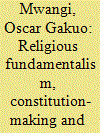

|
|
|
|
|
| Publication |
2012.
|
| Summary/Abstract |
This article examines religious fundamentalism, constitution-making and democracy in Kenya with regard to the arguments surrounding the inclusion of the Kadhis Courts in the country's new Constitution promulgated on 27 August 2010. Kadhis Courts deal with matters of Muslim law and have been entrenched in Kenya's Constitution since the country's independence in 1963. The article argues that the Church and clergy took a fundamentalist position regarding the inclusion of the Courts with the aim of influencing the country's predominantly Christian voters to reject the proposed new constitution at the referendum stage. Kenyans, however, the majority of whom are Christians, overwhelmingly endorsed the constitution. The article underscores that the Church, therefore, lost its moral responsibility and institutional legitimacy as an agent of democracy. The Kenyan experience indicates citizens can ignore religious fundamentalism for the common good of society.
|
|
|
|
|
|
|
|
|
|
|
|
|
|
|
|
| 4 |
ID:
132804
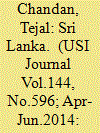

|
|
|
|
|
| Publication |
2014.
|
| Summary/Abstract |
Since the end of the war in Sri Lanka in May 2009, the discourse on Sri Lanka has largely revolved around the country's human rights record and the Government's attempts at redressing Tamil grievances. Revelations in international media about the scale of human rights violations during the last phase of the military operations against the Liberation Tigers of the Tamil Eelam (LTTE) led to mounting international pressure on Sri Lanka for accountability of war crimes. The Sri Lankan Government (SLG), in turn, made efforts to address the issues of resettlement of Internally Displaced Persons (zDPs) and the economic development of war affected zones in the Northern and Eastern Provinces of the country. President Mahinda Rajapakse also constituted the Lessons Learnt and Reconciliation Commission (LLRC) to recommend measures to address the Tamil problem and framed a National Action Plan (NAP) to implement its recommendations. However, key Tamil grievances, related to the devolution of power, remained largely neglected. Attempts at fixing the accountability for human rights violations were also half-hearted. This was evident in the widely publicised Army Court of Inquiry, appointed to investigate allegations of war crimes, which eventually absolved the Army of any wrong- doing'. This in turn, shaped the international opinion on the SLG's willingness to resolve the Tamil problem. Today the prospects for
reconciliation in Sri Lanka are linked to certain key issues. These include (i) Action related to human rights accountability, (ii) Resumption of dialogue between the main Tamil Party, Tamil National Alliance (TNA), and the Government on finding a political solution to the Tamil grievances and, (iii) Preventing the rise of religious intolerance in the country. The contemporary issues with regard to these aspects are discussed in this paper.
|
|
|
|
|
|
|
|
|
|
|
|
|
|
|
|
| 5 |
ID:
139703
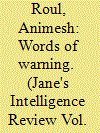

|
|
|